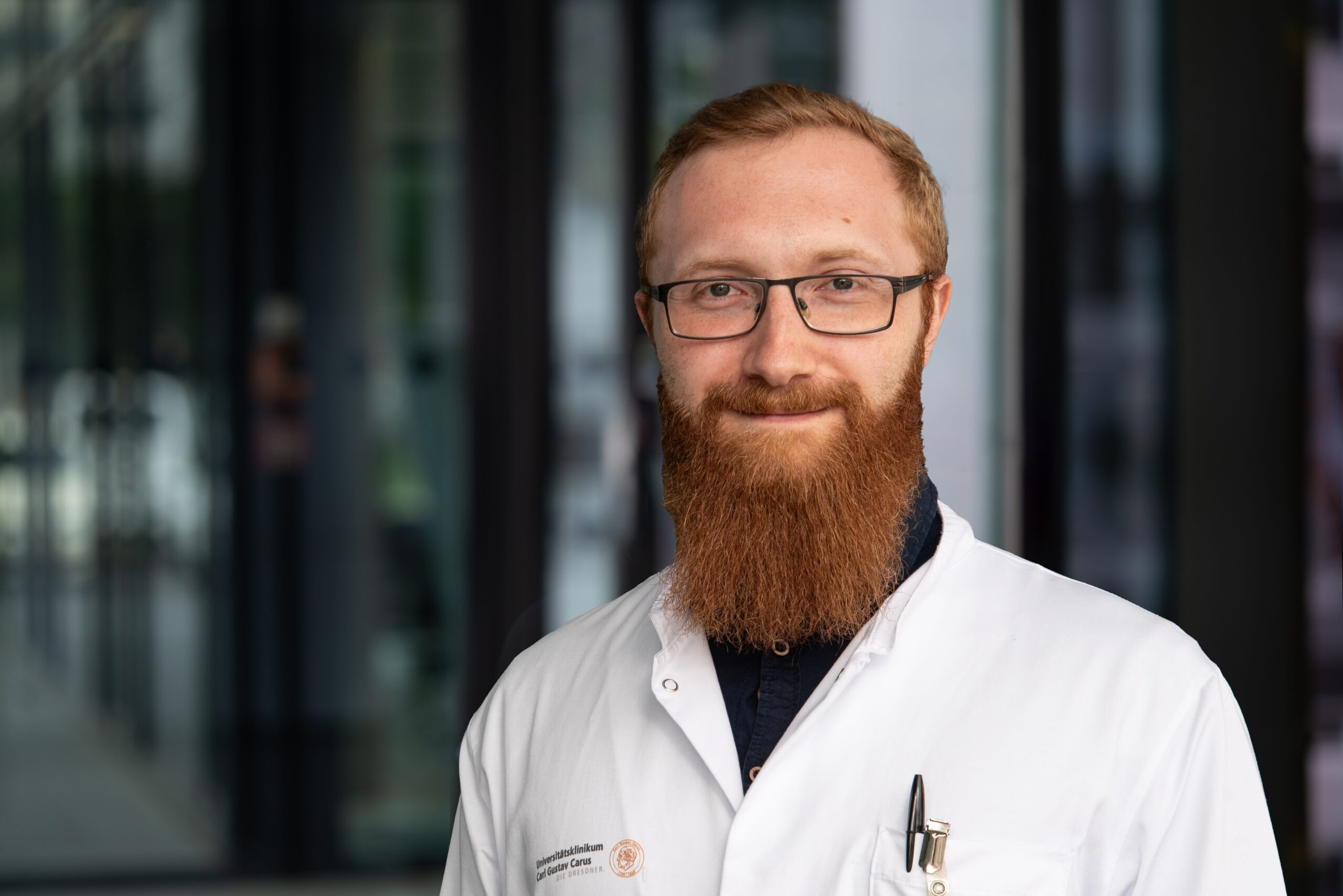The AI in Hematology research group develops artificial intelligence (AI)-based models to enhance diagnosis, prognosis, and clinical decision-making in hematologic diseases.
Vision
Our shared vision is the seamless integration of AI algorithms to improve diagnostic and clinical workflows in hematology and deliver profound results to our patients.
Team
Our interdisciplinary research group has expertise in hematology and medical oncology, biology, as well as data science and computer science. We use our multidisciplinary perspectives to tackle cancer management from a data-driven angle, developing our models using complex, multimodal data from both research and clinical routine.
Jan Moritz Middeke

Jan-Niklas Eckardt

Research Focus Areas
Computer Vision
Diagnosing hematologic malignancies currently relies on expert interpretation of bone marrow smears, a process that is both time-consuming and prone to observer-related variability. To overcome this diagnostic bottleneck, our group develops computer vision models that automate the detection of malignant entities from bone marrow images, predict genotype-phenotype links (visual digital biomarkers), and forecast treatment response.
Risk Assessment and Outcome Prediction
Further, we cooperate with university centers and laboratories both nationally and internationally to gain insights into the complex biology underlying malignant disease progression and treatment response via machine learning on large datasets including clinical, laboratory, and genetic information. To this end, we develop data-driven models to stratify patients according to risk, identify genetic alterations associated with divergent outcomes, cluster patients according to disease biology, and predict responses to different treatments.
Risk and response prediction – Clinical, laboratory, and genetic patient data is used to predict treatment outcomes and identify high- and low-risk features via machine learning
Synthetic Clinical Trials
Clinical trials are the gold standard of evidence-based medicine. However, increasing costs and high failure rates demand advanced trial designs to satisfy the need for clinical trial cohorts in the era of precision medicine. To this end, we use generative models to create synthetic patients that closely mimic disease biology and outcome behavior of real patients. These computationally generated cohorts offer a promising alternative to traditional control groups in clinical trials, with the potential to reduce reliance on physical patient enrollment in the future.
Synthetic clinical trial cohorts – Synthetic patients generated with AI closely mimic real patients, enabling their usage in clinical trial simulations and as synthetic control cohorts.
Contact
Dr. med. Moritz Middeke
The research group is affiliated with the Department of Internal Medicine I at the University Hospital Dresden, the Institute of Software and Multimedia Technology at the University of Technology Dresden, and the Else Kröner Fresenius Center for Digital Health.

